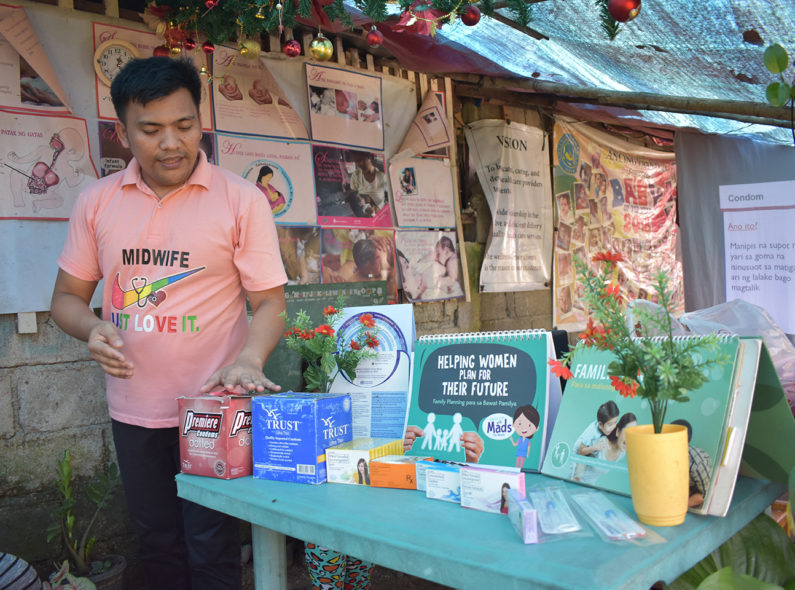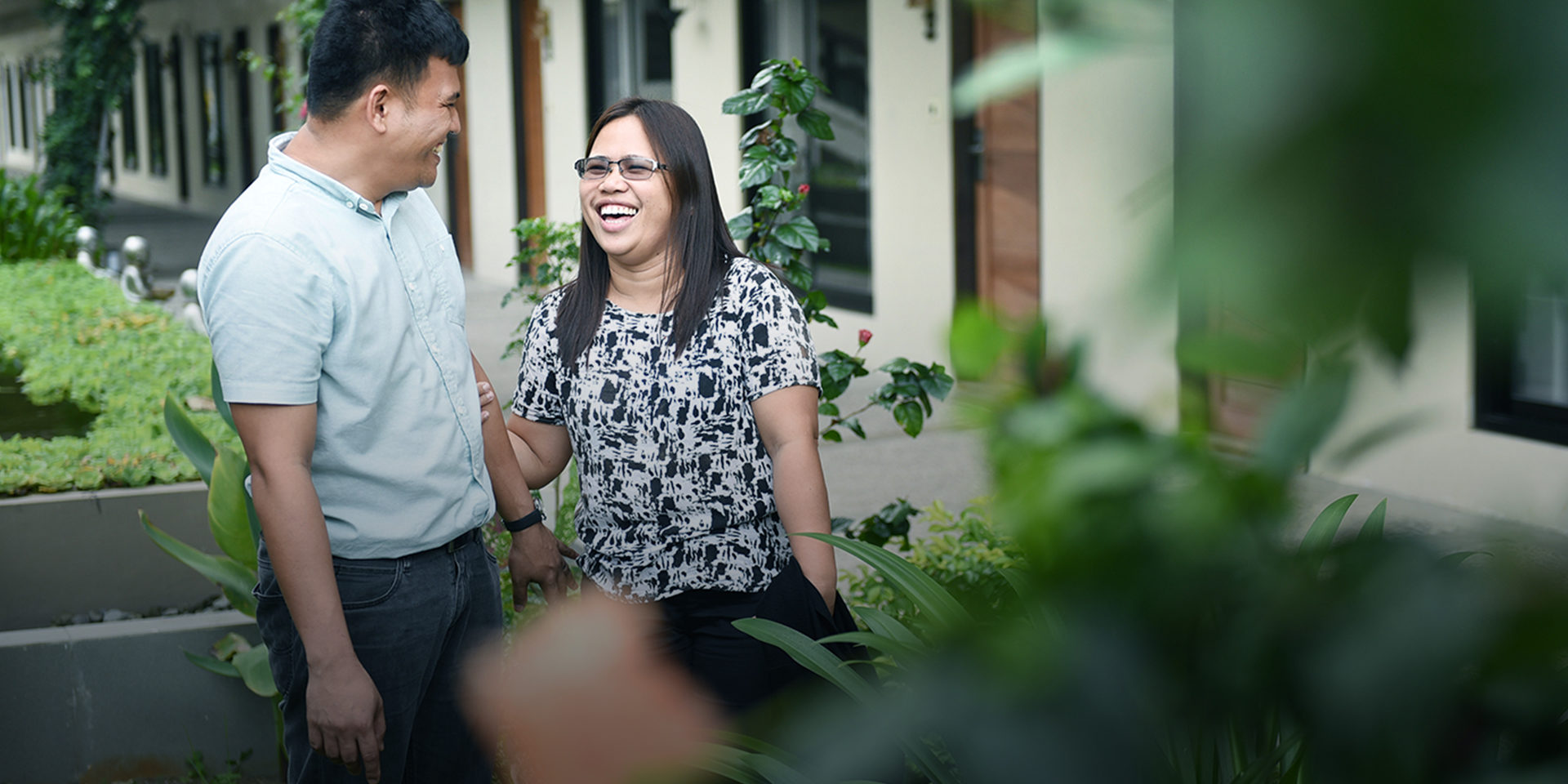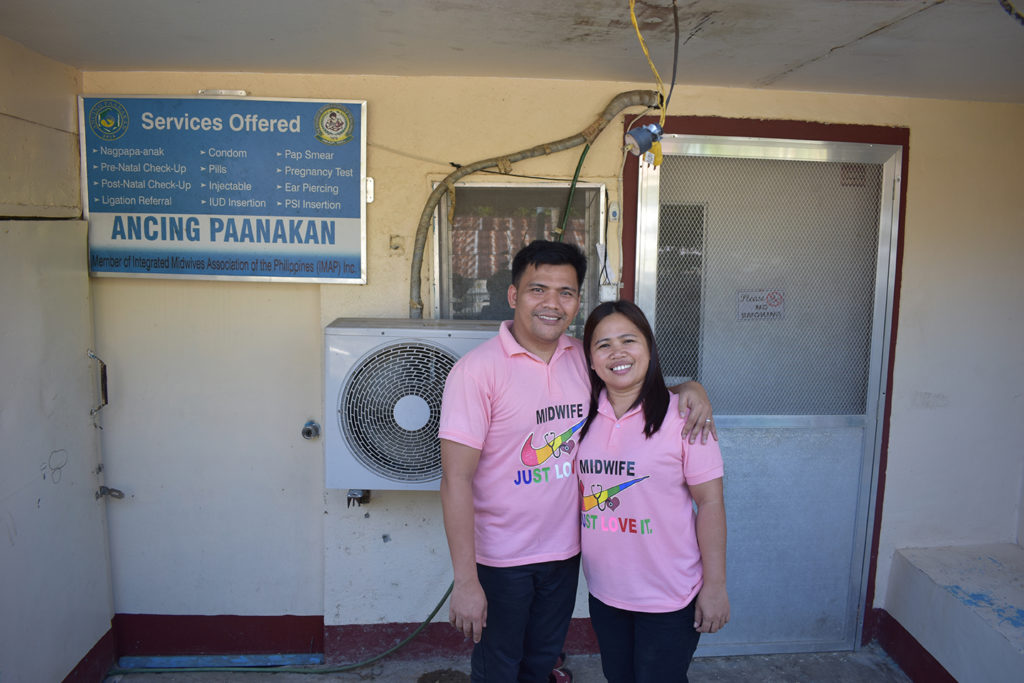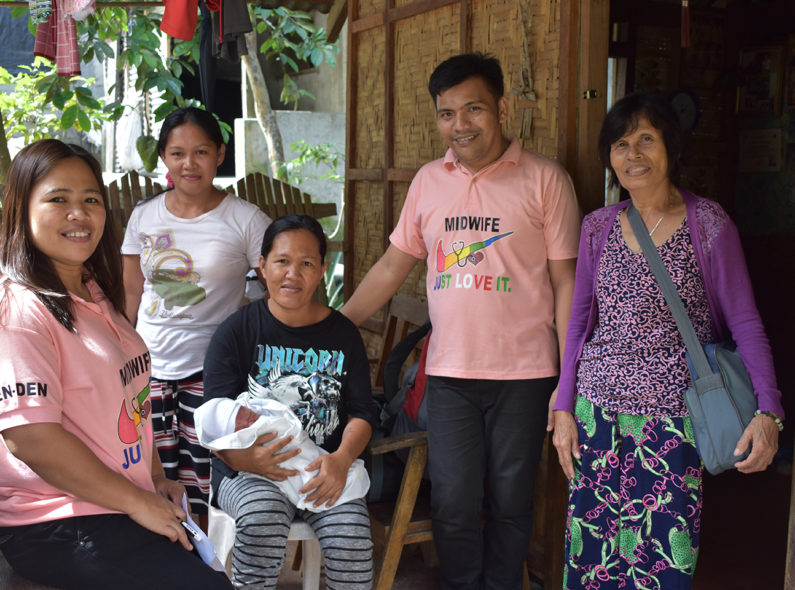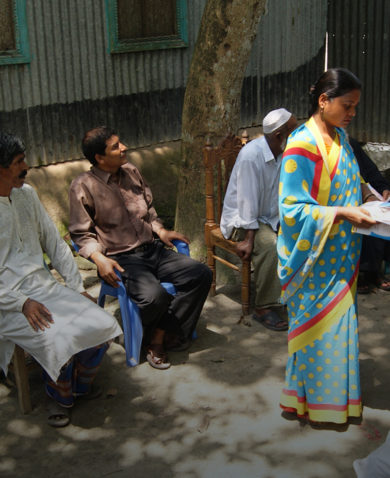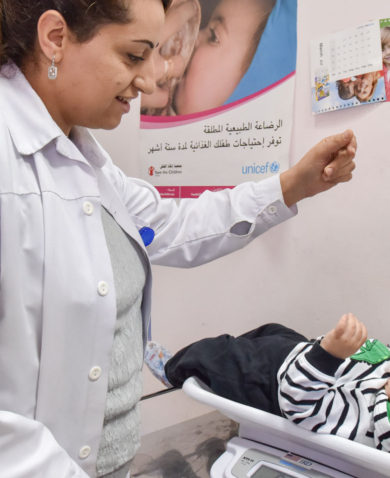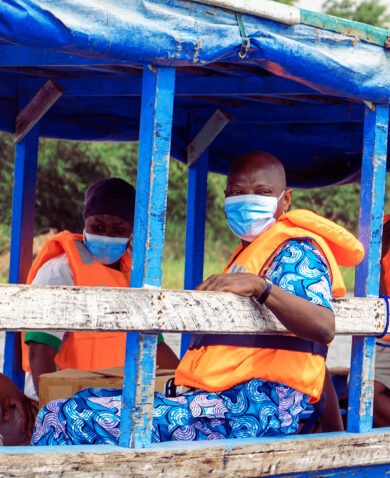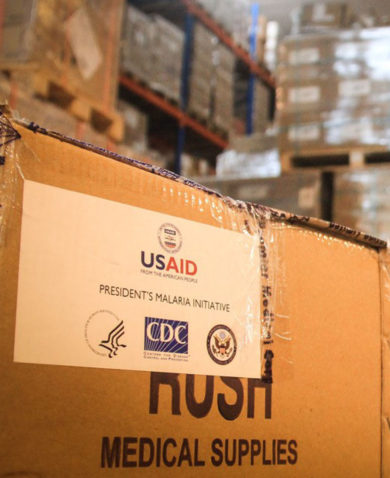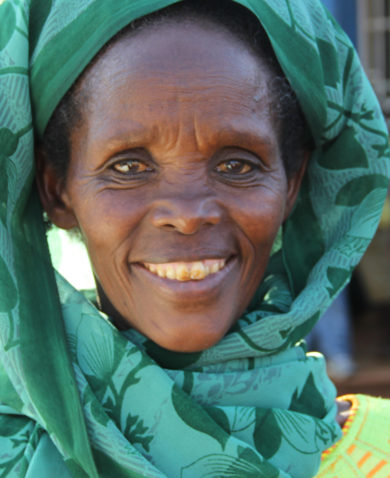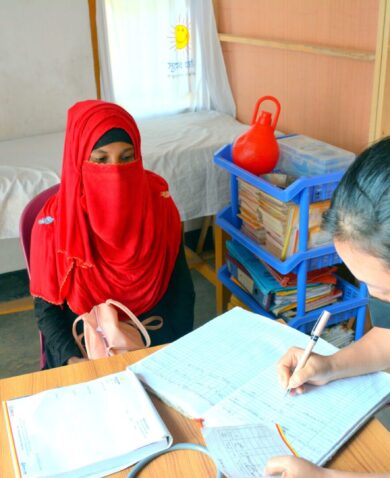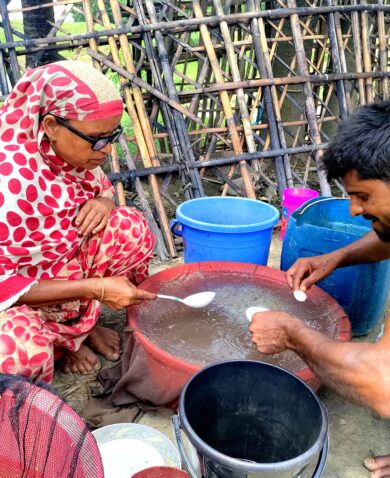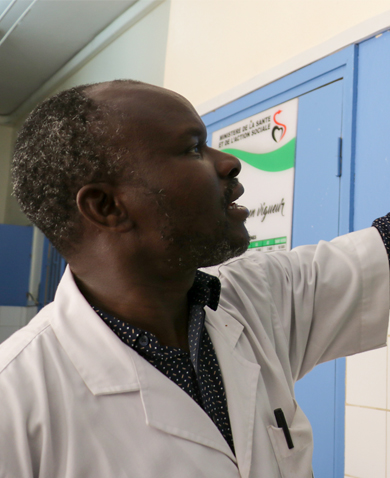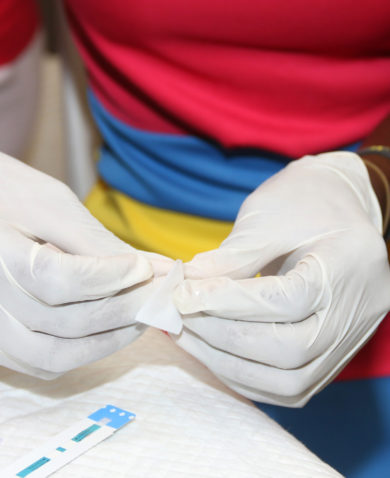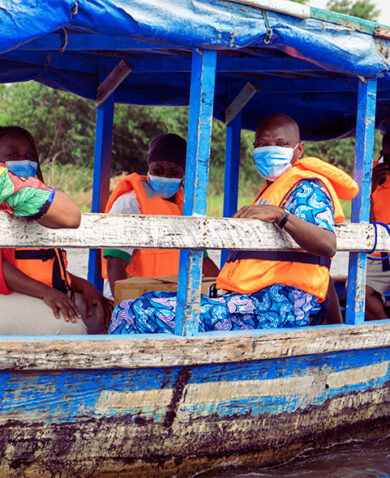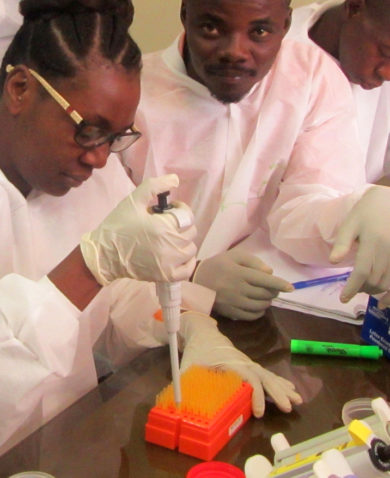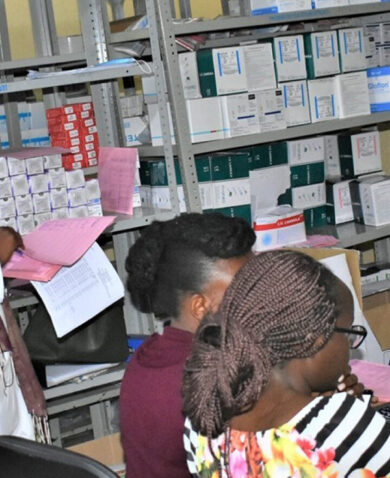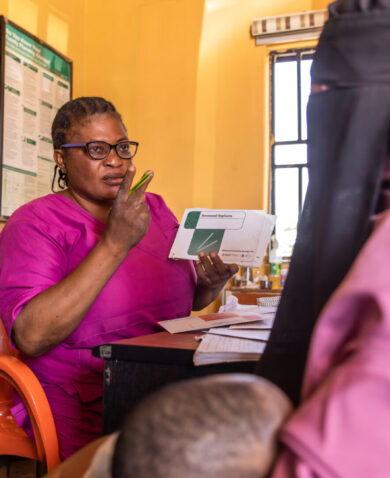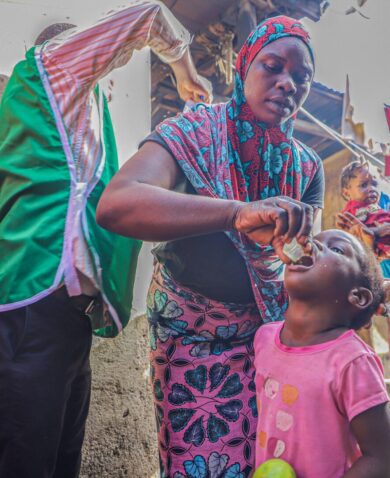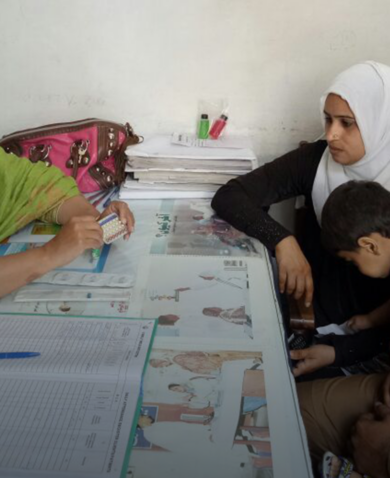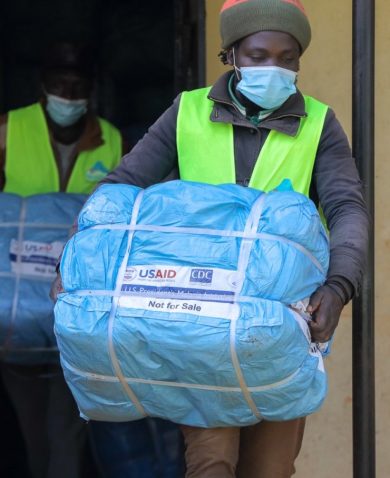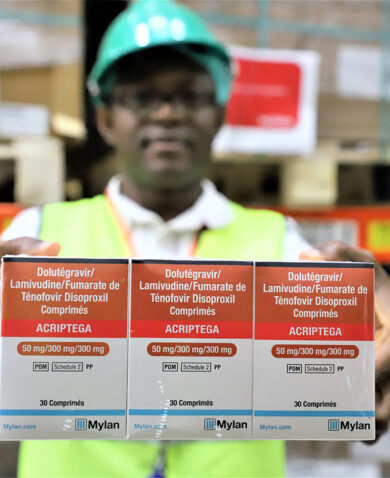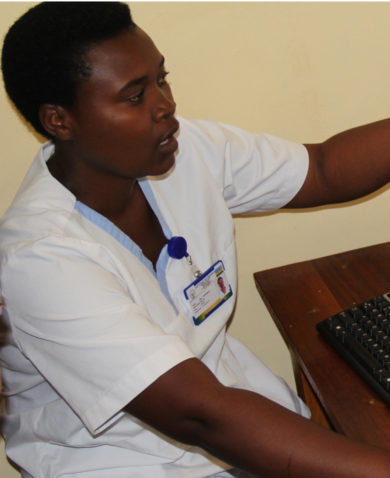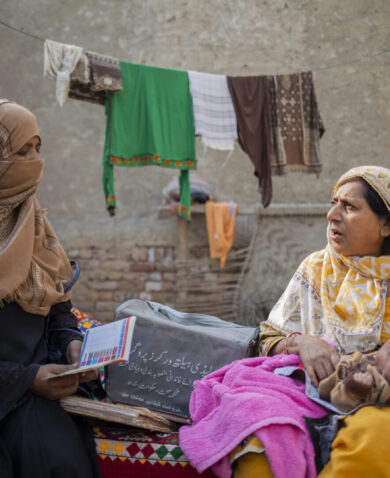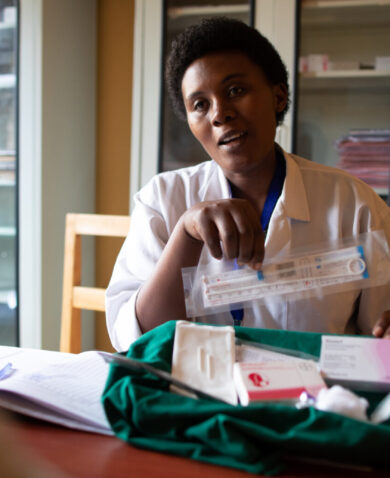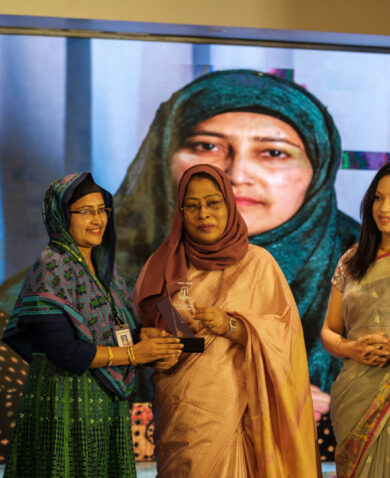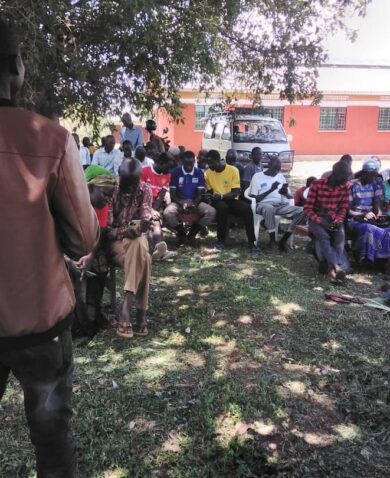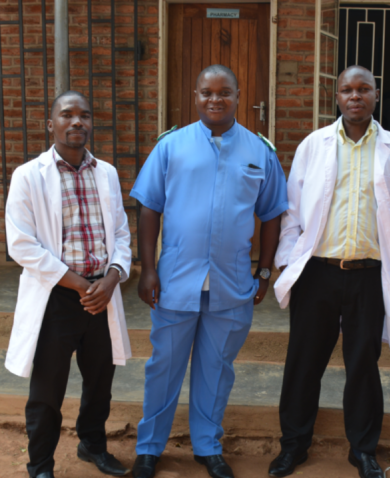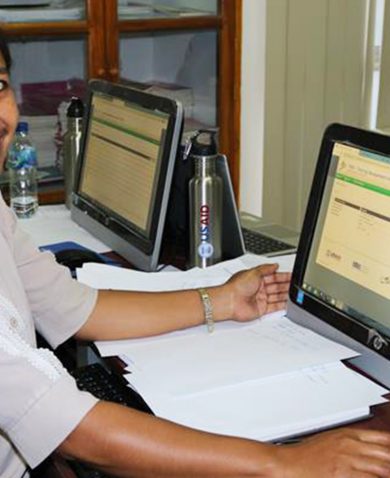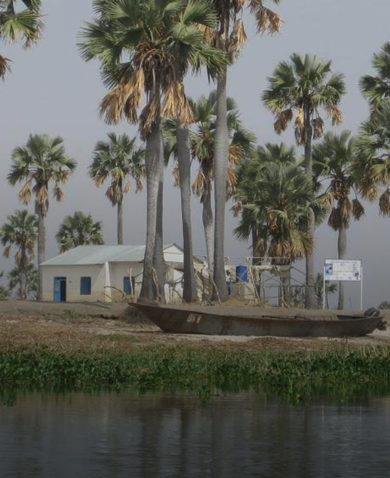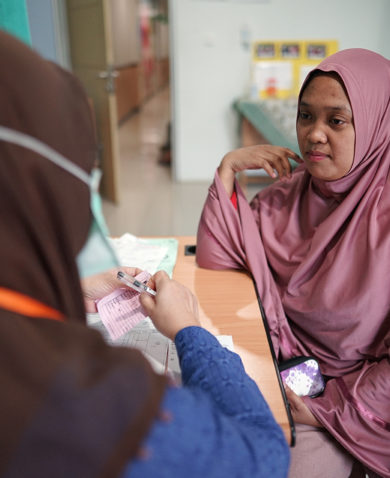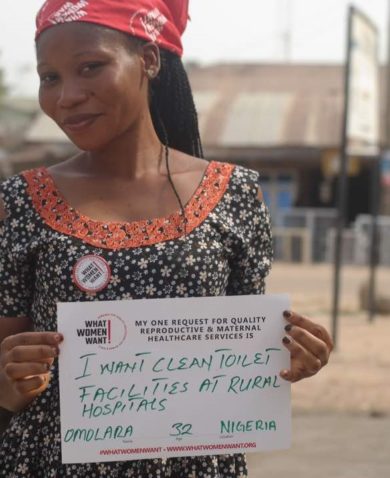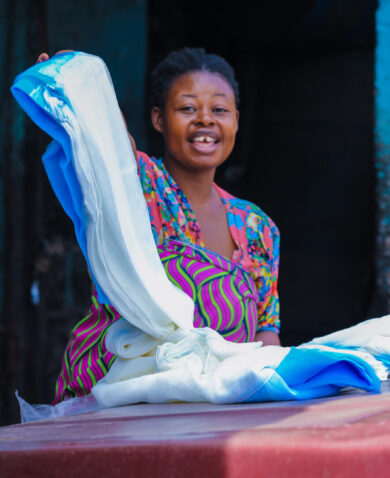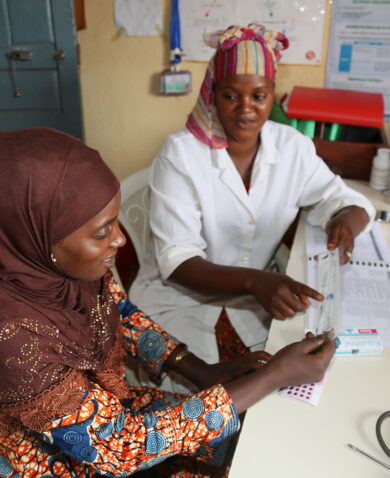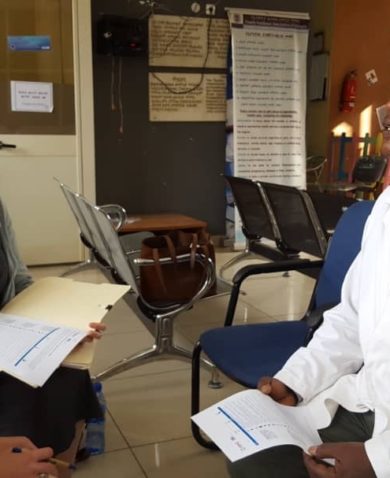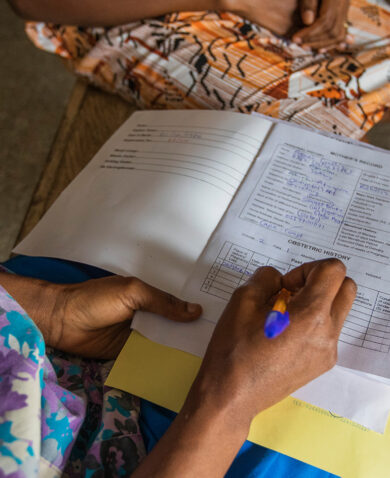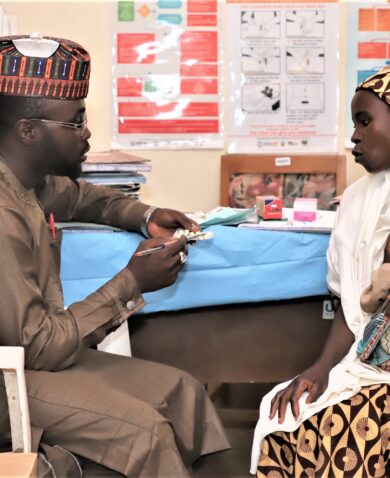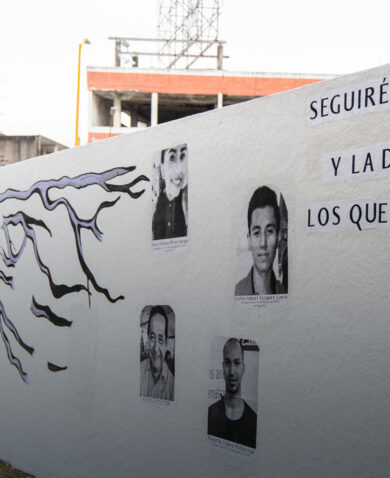Jacinto and Marie Rose’s Journey to Self-Reliance – and Marriage
Before becoming a mother and an entrepreneur, Marie Rose was a project coordinator for the Leyte Family Development Organization (LeFaDO), a local NGO partnering with the Private Sector Mobilization for Family Health Project (PRISM I), a USAID-funded project implemented by Chemonics. Part of her work at LeFaDO included organizing training workshops, and Jacinto happened to be one of the midwives attending the trainings she organized.
“She helped me develop my skills and confidence as a midwife through the trainings and seminars organized by the project,” Jacinto said about Marie Rose while explaining how their love story started.
The couple continued to use the training and services provided by Chemonics to become better midwives and entrepreneurs. After five years as a volunteer midwife, Jacinto had firsthand experience on how poverty prevented mothers from having access to dignified, affordable maternal care services. Simultaneously, Marie Rose began to realize that her familiarity with the Department of Health’s requirements to be linked to PhilHealth — the national health insurance program — gave her a valuable skillset that she could use to establish her own clinic.
With their combined skills and experience, Marie Rose and Jacinto came together and started their own clinic, Ancing Paanakan. Jacinto painted a modest picture of the clinic’s early days: “We went out in search of patients, crossing rivers and walking endlessly through unpaved roads and mountains in the scorching heat of the sun to look for mothers who need the services. Our mantra is to serve the underserved.”
Initially, there were many challenges. The couple experienced financial difficulties early on, as most of their clients lacked the financial resources to pay for the services they received. But thanks to their knowledge of the National Health Insurance Act and its requirements, Marie Rose and Jacinto were able to apply for PhilHealth accreditation, meaning that they could receive reimbursements from the government for every qualifying patient served. The couple also received financial assistance to purchase medical equipment and ultimately achieve financial stability through a public-private partnership with PRISM II.
